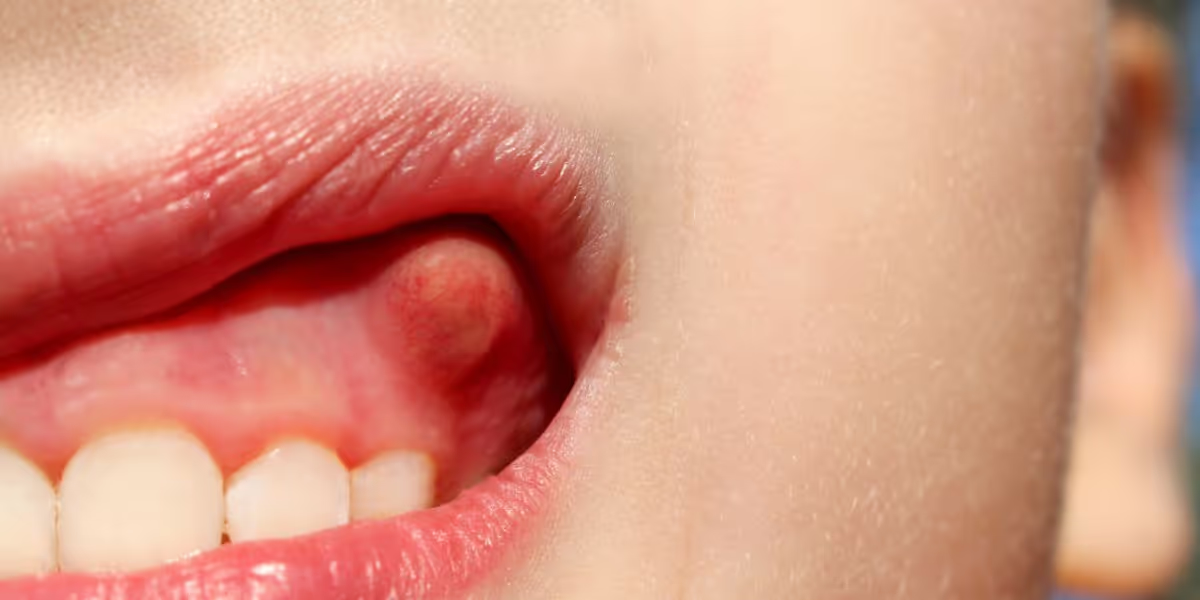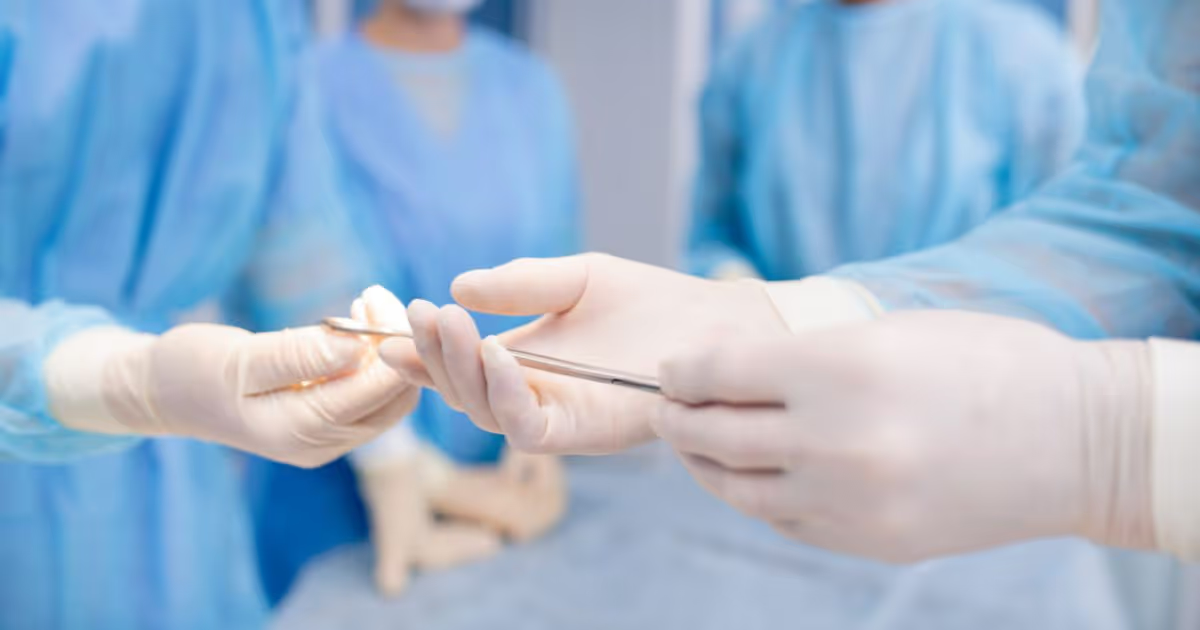เลือกหัวข้อที่ต้องการอ่าน
ฝีคืออะไร?
การเกิด ฝี หรือตุ่มหนองที่มีการติดเชื้อ พบได้บ่อยในหลายอวัยวะ บางคนอาจคิดว่าเป็นเรื่องเล็ก ๆ ปล่อยไว้เดี๋ยวหายเอง จริง ๆ แล้วฝีที่ไม่ได้รักษา อาจทำให้เกิดอันตรายได้
ฝี เป็นโพรงหนองที่เกิดขึ้นได้ทุกที่ในร่างกาย ทั้งบนผิวหนัง ในปาก หรืออวัยวะภายใน เมื่อร่างกายเกิดการติดเชื้อ เซลล์เม็ดเลือดขาวจะเดินทางไปยังบริเวณดังกล่าวเพื่อต่อสู้กับเชื้อโรค จนเกิดการสะสมของเม็ดเลือดขาวขึ้นภายในเนื้อเยื่อที่ได้รับความเสียหาย ทําให้เกิดการอักเสบและเกิดเป็นก้อนขึ้น เมื่อก้อนนั้นมีหนองซึ่งเกิดจากเซลล์เม็ดเลือดขาว เนื้อเยื่อ เชื้อโรคที่ยังมีชีวิตอยู่และตายแล้วรวมทั้งของเหลว จะกลายเป็นฝี
ฝีบนผิวหนังนั้นพบได้บ่อยกว่าฝีในปากและที่อวัยวะภายใน เมื่อพบว่ามีฝี ควรไปพบแพทย์เพื่อรับการตรวจวินิจฉัยและการรักษาที่เหมาะสม เพื่อป้องกันการแพร่กระจายของเชื้อโรค
ประเภทของฝี
ฝีบนผิวหนัง
เป็นชนิดที่พบได้บ่อยที่สุด ซึ่งจะเกิดขึ้นใต้ผิวหนังและรักษาได้ง่าย
- ฝีรักแร้ ส่วนใหญ่เกิดจากการอักเสบของต่อมเหงื่อ ซึ่งทําให้ผิวหนังของรักแร้บวมแดงและกดเจ็บ
- ฝีที่เต้านม พบได้บ่อยในมารดาที่ให้นมบุตร เนื่องจากการติดเชื้อที่เต้านม
- ฝีบริเวณก้นหรือทวารหนัก เช่น ฝีบริเวณขอบทวารหนัก หรือฝีร่องก้น
ฝีในปาก
ฝีอาจเกิดขึ้นได้บริเวณฟัน เหงือก และลําคอ หากฝีเกิดขึ้นรอบ ๆ ฟันจะเรียกว่าฝีในฟันหรือฟันเป็นหนอง โดยแบ่งออกได้เป็น
- ฝีที่เหงือก มักส่งผลต่อเหงือก ไม่ส่งผลกระทบต่อฟัน
- ฝีที่ปลายรากฟัน เกิดขึ้นที่ปลายรากฟันเนื่องจากฟันผุหรือได้รับบาดเจ็บ
- ฝีบริเวณรอบฟัน เกิดจากโรคปริทันต์อักเสบหรือโรคเหงือก มักส่งผลต่อกระดูกและเนื้อเยื่อที่รองรับฟัน
ฝีในปากชนิดอื่น ได้แก่
- ฝีต่อมทอนซิล มักพบในวัยรุ่นและคนหนุ่มสาว
- ฝีรอบต่อมทอลซิล
- ฝีในช่องคอส่วนลึก เกิดขึ้นเมื่อต่อมน้ำเหลืองที่ด้านหลังลําคอเกิดการติดเชื้อ
ฝีที่อวัยวะภายใน
ฝีที่อวัยวะภายใน ซึ่งอาจเกิดได้ในสมอง บนไขสันหลัง หรืออวัยวะภายในอื่น ๆ นั้นมักพบได้น้อยกว่า โดยการตรวจวินิจฉัยและการรักษาฝีที่อวัยวะภายในนั้นจะทำได้ยากกว่าฝีชนิดอื่น ๆ
- ฝีที่ไขสันหลัง
- ฝีในช่องท้อง อาจพบภายในหรือใกล้ไต ตับอ่อน หรือตับ
- ฝีในสมอง มักพบได้น้อย โดยเกิดจากการที่แบคทีเรียในกระแสเลือด แผล หรือการติดเชื้อที่บริเวณศีรษะเดินทางเข้าสู่สมอง

อาการของโรคฝี
ฝีบนผิวหนังจะปรากฏเป็นตุ่มหนอง ผิวหนังรอบฝีจะแดงบวม และอาจทำให้เกิดอาการ เช่น
- ปวด
- มีไข้และหนาวสั่น
ฝีในปากเกิดขึ้นที่เหงือก กราม พื้นปาก หรือภายในกระพุ้งแก้ม ทําให้เกิดอาการดังต่อไปนี้
- ปวดฟันอย่างรุนแรงหรือเสียวฟัน
- อ้าปาก เคี้ยวหรือกลืนลำบาก
- มีไข้
ฝีในผิวหนังชั้นลึกหรือภายในร่างกายอาจไม่ก่อให้เกิดอาการชัดเจน แต่ผู้ป่วยอาจมีอาการซึ่งเกี่ยวข้องกับอวัยวะที่เกิดฝี ยกตัวอย่างเช่น
- มีอาการปวดและกดเจ็บ
- มีไข้หนาวสั่น
- รู้สึกเหนื่อย
- เหงื่อออกมาก
- ไม่อยากอาหาร น้ำหนักลด

ควรไปพบแพทย์เมื่อใด
ผู้ป่วยควรเข้ารับการรักษา หากฝีไม่หายเองภายใน 2-3 วันเพื่อป้องกันไม่ให้ฝีแตกและเชื้อโรคแพร่กระจาย หากมีไข้และมีอาการปวดมากขึ้น ผู้ป่วยควรรีบไปพบแพทย์ทันที
สาเหตุที่เป็นฝี
เชื้อสแตฟฟิโลคอกคัส (Staphylococcus) เป็นแบคทีเรียที่ทําให้เกิดฝีบ่อยที่สุด เชื้อรา เชื้อไวรัส หรือเชื้อปรสิตมักไม่ค่อยทําให้เกิดฝี โดยเมื่อเซลล์เม็ดเลือดขาวต่อสู้กับแบคทีเรียที่บุกรุกเข้ามาในร่างกาย เนื้อเยื่อที่อยู่ใกล้เคียงจะเกิดการอักเสบและตายลง ทําให้เกิดก้อนหนองหรือฝี
การตรวจวินิจฉัยโรคฝี
- การตรวจร่างกาย เพื่อตรวจดูฝีบนผิวหนัง แพทย์อาจเก็บหนองไปตรวจสอบเพาะเชื้อเพื่อระบุชนิดของแบคทีเรียและวางแผนวิธีการรักษาที่เหมาะสม
- การตรวจวินิจฉัยด้วยภาพถ่าย เช่น การอัลตราซาวนด์ CT scan และ MRI เพื่อตรวจฝีในอวัยวะภายใน
การรักษาฝี
ฝีบนผิวหนังขนาดเล็กอาจหายได้เอง เมื่ออยู่บ้านผู้ป่วยอาจประคบอุ่นบนฝีเพื่อกระตุ้นให้ฝีระบายออกเองตามธรรมชาติ แต่ไม่ควรบีบหนองออกจากฝี เพราะจะทำให้แบคทีเรียแพร่กระจายไปยังบริเวณอื่นได้
ในการรักษาฝีบนผิวหนัง แพทย์จะให้รับประทานยาปฏิชีวนะ พร้อมกับการผ่าตัดเพื่อระบายหนอง ในระหว่างการผ่าตัด แพทย์จะฉีดยาระงับความรู้สึกบริเวณรอบ ๆ ฝี ก่อนที่จะทำการกรีดเพื่อเอาหนองและเนื้อเยื่อที่ตายแล้วออก แพทย์จะเปิดแผลไว้เพื่อให้หนองที่ยังค้างอยู่สามารถระบายออกมาได้ก่อนที่จะใช้ผ้าก๊อสและพลาสเตอร์เพื่อปิดแผล ขณะที่อยู่ที่บ้านผู้ป่วยควรตรวจดูแผลและเปลี่ยนผ้าก๊อสถ้าเปียกชุ่ม โดยแผลจะเริ่มตกสะเก็ด ซึ่งเป็นสัญญาณว่าแผลกำลังจะหาย ซึ่งมักหายสนิทภายใน 2 สัปดาห์
ในการรักษาฝีที่เหงือก ผู้ป่วยต้องรับประทานยาปฏิชีวนะ แพทย์จะผ่าฝีเพื่อระบายหนอง และทำการถอนฟันหรือรักษารากฟันในบางราย การรักษาฝีในปากนั้นจำเป็นมากเนื่องจากเชื้อโรคสามารถแพร่กระจายไปยังเนื้อเยื่อรอบ ๆ ทําให้เกิดภาวะแทรกซ้อนที่เป็นอันตรายต่อชีวิต เช่น การติดเชื้อในกระแสเลือดหรือโรคแบคทีเรียกินเนื้อ
แพทย์จะทำการใช้เข็มเจาะเพื่อรักษาฝีที่อวัยวะภายใน โดยอาจให้ยาระงับความรู้สึกเฉพาะที่หรือทั่วร่างกาย ขึ้นอยู่กับตำแหน่งของฝี แพทย์จะทำการอัลตราซาวนด์หรือ CT scan เพื่อระบุตำแหน่งที่ต้องการแทงเข็ม และกรีดแผลเล็ก ๆ บนผิวหนังเพื่อใส่สายสวนสำหรับการระบายหนองเข้าไปในถุงรองรับด้านนอก โดยอาจติดถุงไว้กับตัวผู้ป่วยเป็นเวลาหนึ่งสัปดาห์หรือมากกว่านั้นเพื่อให้หนองที่ค้างอยู่ไหลออกมาได้หมด
การป้องกันการเกิดฝี
เพื่อป้องกันฝีบนผิวหนังหรือในปาก ควรปฏิบัติตัวดังต่อไปนี้
- รักษาผิวให้แห้งสะอาดอยู่เสมอ
- ล้างมือบ่อย ๆ
- อย่าใช้ของใช้ส่วนตัว เช่น แปรงสีฟัน ผ้าขนหนู หรือมีดโกน ร่วมกับผู้อื่น
- ระมัดระวังเวลาโกนหนวด ไม่ให้เกิดแผล
- รักษาสุขอนามัยทางช่องปาก
- ฝีในอวัยวะภายในนั้นมักเป็นภาวะแทรกซ้อนจากโรคอื่น ๆ จึงป้องกันได้ยาก
บทความโดย
พญ.รพีพรรณ รัตนวงศ์นรา มอร์ด
แพทย์อายุรศาสตร์โรคติดเชื้อ
ประวัติแพทย์









